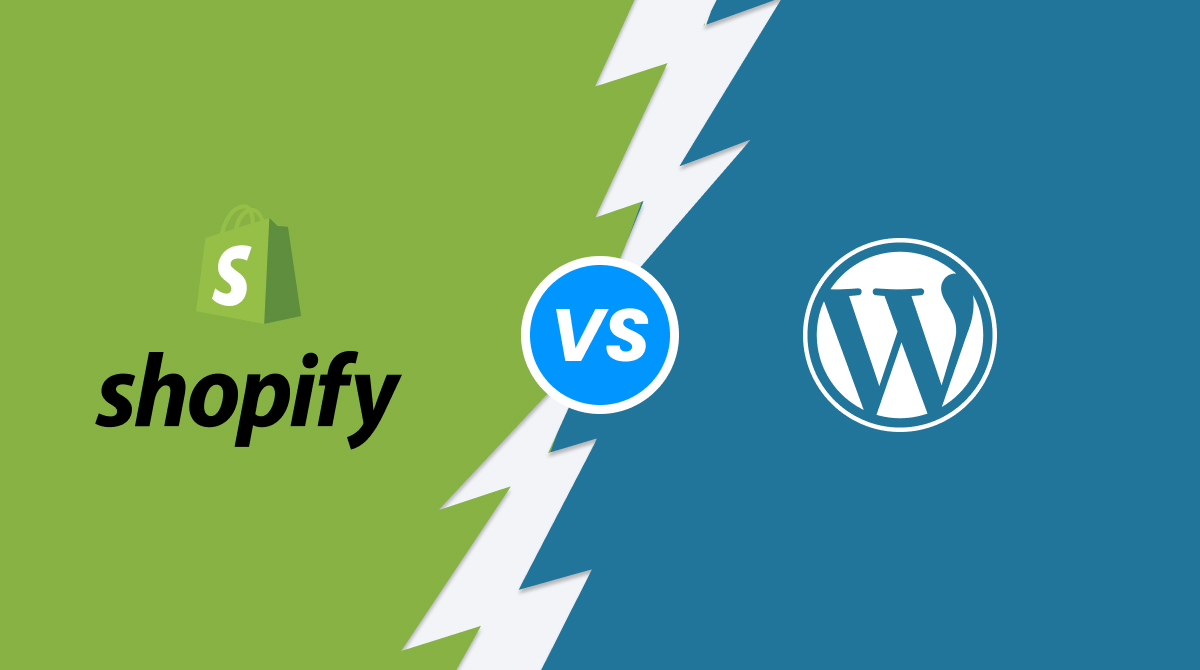In the quest to establish a robust online presence, choosing the right platform is pivotal. Shopify and WordPress are two prominent options, each with its own strengths and considerations. This comparison aims to guide you in evaluating features and determining the suitability of Shopify and WordPress for your specific needs.
**1. Ease of Use:
- Shopify:
- Offers an intuitive and user-friendly interface.
- Ideal for beginners with a straightforward setup process.
- WordPress:
- Requires a learning curve, especially for those new to website building.
- Relies on themes and plugins for customization.
**2. E-commerce Functionality:
- Shopify:
- Built specifically for e-commerce, providing dedicated features for online stores.
- Seamless integration with payment gateways and efficient inventory management.
- WordPress:
- Utilizes plugins like WooCommerce for e-commerce functionality.
- Offers flexibility, but may require additional setup and customization.
**3. Design and Customization:
- Shopify:
- Provides a range of customizable templates.
- Limited flexibility compared to WordPress but ensures a cohesive design.
- WordPress:
- Offers extensive customization options through themes and plugins.
- Greater flexibility in design but may require more technical knowledge.
**4. Cost Considerations:
- Shopify:
- Subscription-based model with monthly fees.
- Additional costs for premium themes and apps.
- WordPress:
- Open-source platform, making it cost-effective.
- Costs may include hosting, premium themes, and plugins.
**5. Scalability:
- Shopify:
- Highly scalable, suitable for small businesses to enterprise-level operations.
- Infrastructure automatically scales to handle increased traffic.
- WordPress:
- Scalable with the right hosting and optimization.
- May require more hands-on management as traffic grows.
**6. SEO Capabilities:
- Shopify:
- Built-in SEO features with customization options.
- Handles technical SEO aspects automatically.
- WordPress:
- Offers robust SEO capabilities, especially with plugins like Yoast.
- Allows granular control over SEO elements.
**7. Security:
- Shopify:
- Hosted on Shopify’s secure servers, reducing security concerns.
- Regular updates and monitoring for security.
- WordPress:
- Security depends on hosting quality and plugin management.
- Requires active measures to ensure a secure environment.
**8. Community and Support:
- Shopify:
- Offers dedicated customer support.
- Active community and forums for assistance.
- WordPress:
- Large and supportive community.
- Extensive documentation and forums for troubleshooting.
**9. Ownership and Control:
- Shopify:
- Hosted solution, limiting control over the infrastructure.
- Subscription-based, and store data is hosted by Shopify.
- WordPress:
- Self-hosted, providing more control over the website.
- Ownership of the data and website infrastructure.
**10. Use Case Considerations: – Shopify: – Ideal for businesses focused on e-commerce with a streamlined, user-friendly setup. – WordPress: – Suitable for those requiring flexibility, customization, and a mix of content and e-commerce.
Conclusion:
Choosing between Shopify and WordPress ultimately depends on your specific needs and priorities. If you prioritize ease of use and a dedicated e-commerce focus, Shopify may be the ideal choice. On the other hand, if you value flexibility, customization, and control over your website, WordPress could be the more suitable option. Evaluate your business requirements, technical expertise, and long-term goals to make an informed decision that aligns with your online presence objectives.



